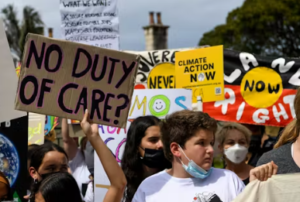
Young Movement and Financial Transformation
Young action has become a potent tool in recent years helping to shape social change and economic policies. Examining the reasons, strategies, and effects of youth activists’ actions, this paper explores their interaction with economic transformation. Understanding this relationship helps us to value how youthful voices are shaping economies all around.
Appreciating Youth Involvement
Define youth activism.
Young activism is the involvement of youth in support of social, political, and economic transformation. Protests, internet campaigns, community organizing, and policy-making process participation are just a few of the several ways this involvement could show up. Young activists frequently have as their driving forces a need for justice, equality and a sustainable future.
The Birth of Digital Platforms
As technology has developed, internet channels have transformed the way young activists plan and coordinate. Social media platforms including Twitter, Instagram and TikHub let knowledge be shared quickly and help young people all around to have more influence. This digital participation goes beyond awareness-raising; it often results in actual acts fostering economic transformation.
The Economic Context: Devaluation of Economic Challenges
Among the many difficulties the global economy must contend with are economic inequality, unemployment, and climate change. Often the most impacted by these problems, young people are growingly conscious of the financial differences that exist. Their activity is driven by this understanding as they try to solve structural problems endangering economic stability and expansion.
The Function of Learning
The viewpoints of young activists are much shaped by education. Many young people have received instruction in environmental sustainability, social justice and economic ideas. This information enables them to actively interact with current economic systems and promote alternative models stressing sustainability and equality.
Important Questions Motivated by Young Activism
Environmental Change and Financial Stability
Climate change is among the most often supported causes by young activists. Young people understand that damage of the environment has serious economic consequences. Advocacy for sustainable agriculture, renewable energy sources, and responsible consumption guarantees a viable economic future as much as it protects the earth.
Movement on the Green Economy
Leading the green economy movement and advocating laws encouraging sustainable activities are young activists. Along with addressing climate change, this reform strives to generate fresh economic possibilities in the renewable energy industry, therefore promoting job development and economic resilience.
Income Variations and Just Compensation
For young campaigners, another urgent issue is income disparity. They are more vocal than ever about the necessity of fair salaries and equal employment possibilities. Part of a larger movement for economic justice include campaigns for a livable wage, the elimination of unpaid internships, and workers’ rights.
The struggle for a minimum wage rise
Young activists have been effective in several areas advocating minimum pay raises. By raising consumer spending, these initiatives not only enhance low-income people’ quality of living but also boost local businesses.
Education and Work Opportunity Access
Young activists’ main priorities are access to meaningful work and high-quality education. They support laws giving fair access to job placement programs, vocational training and educational resources. Young activists want to empower their peers and help to strengthen the economy by tackling these problems.
Young Unemployment and Economic Effects
High rates of young unemployment might hinder economic development and cause long-term social problems. Particularly in developing sectors, activists strive to support projects generating employment, therefore directly influencing economic stability and development.
Youth Activism Strategies: Approaches
Groundwork Organizing
Still a great tactic for young activists is grassroots organization. Young people may generate great pressure on legislators to correct economic inequalities by organizing groups and establishing networks. Often times, this local approach promotes larger involvement and unity.
Online Advertising
Digital activism has changed the scene of young participation. Online campaigns let activists share their stories, push for economic changes free from geographical constraints and reach a worldwide audience. Among the several tactics that have worked well in increasing awareness and gathering support are hashtags, viral videos, and online petitions.
Working Along with Existing Companies
Many young activists work with well-known NGOs and campaigning groups. These alliances can help to magnify their voices and give them access to tools and knowledge to support their work. Working together, they can provide a more strong force for economic transformation.

Youth Activism’s Effects on Reforms and Policy Changes Affecting Economic Policies
Young activists have produced real legislative changes in several nations. From labor laws to environmental legislation, young people have effectively persuaded decision-makers to implement changes consistent with their ideal of a fair and sustainable economy.
Global influence
Local movements can motivate worldwide action since young activism is global. Events such as the Global Climate Strikes highlight the interdependence of these initiatives, therefore affecting economic policy all throughout the world.
The Evolution of Economic Systems
Youth activists’ thoughts and solutions might help to shape economic systems going forward as they keep calling for economic fairness. As young people see a more fair and sustainable world, ideas including circular economies, community-based businesses, and ethical consumption are gathering steam.
Successful Youth Activism Case Studies
The Sunrise Movement American Style
One excellent illustration of how young action may propel economic transformation is the Sunrise Movement. Established in 2017, this group has concentrated on promoting the Green New Deal, a whole program meant to solve climate change and provide millions of employment. By means of digital campaigns and grassroots mobilization, the Sunrise Movement has effectively shaped public opinion and policy recommendations at the highest level.
Fridays for Future
Started by Greta Thunberg, Friday for Future has gathered millions of young people worldwide to call for immediate action on climate change. This movement has not only raised awareness but also pushed governments to adopt more strong environmental legislation by means of public demonstrations and school strikes, therefore influencing economic strategies connected to sustainability.
South Africa’s Fight for Equality
Young activists have been very important in South Africa in supporting economic changes meant to correct racial disparities. Movements like #FeesMustFall have brought attention to the need of easily available education and economic possibilities for underprivileged groups. These activities have resulted in debates on funding for projects aimed at economic empowerment as well as education.
Difficulties Young activists Experience
Structual Obstacles
Young activists sometimes encounter structural obstacles that might limit their influence despite their best efforts. Major obstacles include be bureaucratic reluctance, inadequate financing, and political opposition. Getting across these challenges calls for strategic strategy and fortitude.
Generation Difference
Furthermore complicating efforts for economic transformation is the generational gap. Older generations could not completely appreciate or support the aims of young activists, which would result in little cooperation. Encouragement of intergenerational communication and collaboration depends on closing this divide.
burnout and mental health
Activism’s emotional toll can cause mental health problems and fatigue. Young activists coping with the weight of world events sometimes feel tremendous pressure to succeed. Maintaining their efforts over the long run depends on support networks and self-care habits.
The Part Education Plays in Encouragement of Activism
Incorporating Activism into Education
Young activists might be greatly encouraged by educational institutions. Schools can enable students to actively participate with social justice, environmental sustainability, and economic inequity by including these subjects into courses.
Advocating Critical Thought
Development of informed activists depends on teaching critical thinking techniques. Encouragement of pupils to examine economic institutions, challenge accepted wisdom, and suggest creative ideas helps them to be ready for successful advocacy.
Creating venues for young voices.
Young voices can find outlets in colleges and institutions. Establishing venues for communication, debate, and conversation helps young people to voice their ideas and hone their activism abilities.
Youth Activism’s Future: Economic Change and a Rising Movement
Youth involvement is probably going to increase as global issues get more obvious. Young people are driving a more comprehensive approach to activism since they are growingly conscious of the interdependence of social, economic, and environmental issues.
Advocating Innovation
Young activists of today will probably embrace new technologies and creative ideas going forward. The opportunities are unlimited from virtual reality simulations teaching about economic problems to AI-driven marketing.
Creating Partnerships
Young activists working with different stakeholders—businesses, governments, NGOs, etc.—will find great value in their interactions. Creating partnerships helps to improve the effect of advocacy campaigns and result in more all-encompassing economic reforms.
In essence,
Driven by a strong dedication to social justice, sustainability, and equality, young activism is a necessary tool for economic transformation. Young people are changing the economic scene by leveraging digital platforms, grassroots organizing, and creative ideas. Their efforts will surely affect policies and practices for next generations as they keep advocating a brighter future. Building a more fair and sustainable society depends on us embracing the voices of young people and supporting their activity.